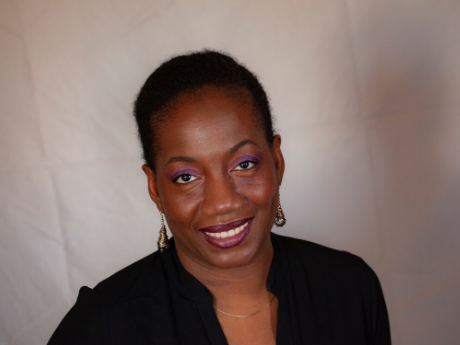Award Winners
Robert H. Winner Memorial Award - 2020
Teri Ellen Cross Davis

The Goddess of Cleaning
I bequeath you bleach
its singeing sting.
I bequeath you the scrub
brush, best done on hands
and knees. I bequeath you
ammonia for the exorcism
of dirt. I bequeath you power
over clutter—the washing
machine’s spin, the dryer’s
lint grin. I bequeath you
the salvation of sweeping
—a consecrated grip on
the broomstick. I bequeath
you the dust pan’s collection
plate, the floor’s sanctified
echo, the trash bin’s penitent
face. I bequeath you the
gospel of a mop, the sacred
slosh of a rinse bucket’s
second coming. I bequeath
you the torn t-shirt as rag,
the two-sided sponge,
vinegar and newspaper’s
squeak, the glass free
of streak. I bequeath you
an old toothbrush for tiles’
hard-to-reach grime.
I bequeath you the grunt
and scrub of wool,
the eradication of rust.
Trust in me, I baptize you
in sweat, labor’s beatific
stain. I bequeath you
the power to change
one room at a time.
Reprinted with the permission of the poet.
Ray Gonzalez on Teri Ellen Cross Davis
These are stunning, vivid poems about self-discovery and how all poets use their voices to find universal truths. The author’s perfect long stanzas work as magnets that close the distance between reader and writer. In “The Goddess of Scars,” the poet says, “Consider my evolution a song to survival.” Indeed, this sequence of poems builds on the breathless continuation of life after motherhood, on the dangers of identity politics, and the violent truths many cultures confront in today’s America. One of the central poems in the sequence is “The Goddess of Blood” where pagan ritual encompasses pregnancy, birthing, menopause, and death. This cycle of love and sacrifice is also shown with the unexpected topic of being a cleaning woman. “The Goddess of Cleaning” emphasizes how manual labor and the strength of the poet will “bequeath you power over clutter” and “the salvation of sweeping.” These beautiful poems carve dynamic, timeless roles for women, made fresh by visionary language. They contain a light drawn by many poetic forces working together. With the use of brilliant metaphors and unforgettable imagery, this poet unleashes the agony of experience as these poems take the reader through the eternal power of the womb. What makes this poetry come alive is the bare form of personal memory and confession that transform the poems into bristling documents that prove what the great Chilean poet Pablo Neruda once wrote—“Poetry is power.”
